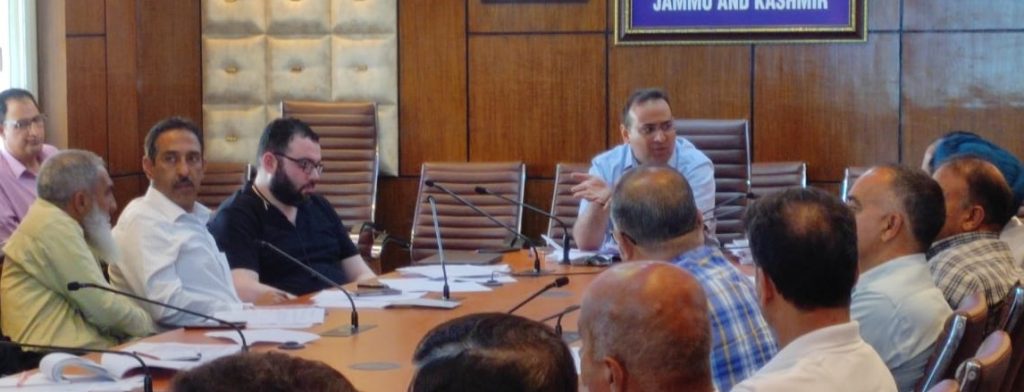SRINAGAR, JUNE 21: Commissioner Secretary, Science & Technology (S&T), Saurabh Bhagat, today chaired a meeting with designated Nodal Officers of all departments at Civil Secretariat here, to discuss saturation of Solar Rooftop Power Plants on Government Buildings in Jammu and Kashmir.
Among others, the meeting was attended by Additional Secretary, S&T Department, CEO JAKEDA, Executive Engineer JAKEDA and the consultants from AHA solar Technologies Ltd.
During the meeting the Commissioner Secretary informed that a two-pronged strategy is being adopted for 100% solarisation of the Government Buildings.
It was given out in the meeting that out of 22494 Government Buildings to be solarized, 8792 numbers with a cumulative capacity of 70MW shall be solarized in Capex mode at a total project cost of Rs 350 crores, for which the tender has been floated by JAKEDA, while as 7039 numbers of buildings with 175 MW cumulative capacity shall be taken up for solarisation under RESCO mode of implementation through Solar Power Developers (SPDs) on tariff based bidding.
It was also informed in the meeting that so far 3825 numbers of Government Buildings have already been solarized which is equivalent to 17%.
The representatives of all the Departments gave their formal consent for project and also assured JAKEDA of their fund contributions out of their respective Capex Budgets.
Pertinently, under this scheme, the Rooftop Solar Power Plants would be connected with the Utility Grid on Net Metering basis. The smart meters would be provided by the DISCOMs enabled with bi-directional feature. The Virtual Net Metering (VNM) benefit would be passed by the DISCOMs to Departments where excess energy generated by the Solar Power Plants at a particular site would be adjusted against the other sites of the same department, within the same DISCOM. The Project shall be completed by December, 2025.
The Solarisation of Government Buildings will lead to reduction in energy billing of the Departments and dependence on fossil fuels to achieve the renewable power obligations under various national and international commitments.
J&K will benefit from the generation of approximately 400 Million Units of clean energy annually, and 10,000 MUs over the minimum lifetime of 25 years of the project. The investment in CAPEX mode shall be recovered at a rate of 25% annually with a payback period of approximately 4 years, on account of saving of Energy, while as in 50% of bill amount would be saved under RESCO mode of Solarisation of government buildings. The overall funds saved on this account could be utilized for other developmental works in the UT of J&K


